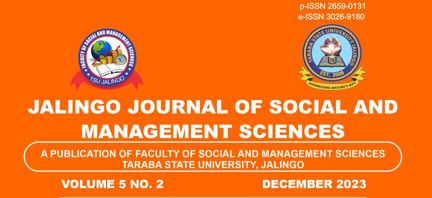Micro Finance Bank Operations and Economic Development: Nigeria in Perspective
Keywords:
Bank deposit, gross domestic product per capita, micro finance bank, micro finance bank loans, micro finance bank investment, micro finance bank interest rateAbstract
This study examines the effects of microfinance banks operations on economic development in Nigeria. Given the problems saddling the operations of Microfinance banks such as loan repayments, inadequate finance, high operating cost and a myriad of others this study made emphasis on the expected and observed effects using Gross Domestic Product per Capita (proxy for economic development) as dependent variable, Micro Finance Bank Deposit, Micro Finance Bank Loans, Micro Finance Bank investments, Micro Finance Bank Interest Rate (to capture microfinance bank operations) as dependent variables. The study employed Auto Regressive Distributive Lag (ARDL) technique on time series data gathered on the dependent and independent variables from 1993 to 2022 for the analysis. Results from the estimations showed that for the period under review there exists a long run relationship between the dependent and independent variables, the analysis further revealed that the R2 which measures the overall goodness of fit of the entire ARDL model has a very high good fit. This is represented with the R2 value of 0.9984 (99.84%). This indicates that the independent variable accounted for about 99.84% variation in the dependent variable. It was therefore recommended that micro finance banks should increase their credit operations to the productive sector of the economy so as to enhance productivity, which will in turn lead to increased economic growth and development.

Downloads
Published
Issue
Section
License
Copyright (c) 2023 JALINGO JOURNAL OF SOCIAL AND MANAGEMENT SCIENCES

This work is licensed under a Creative Commons Attribution-NonCommercial 4.0 International License.
